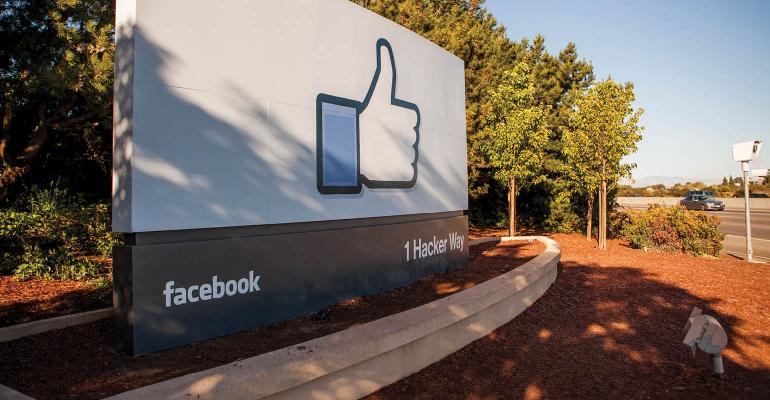(Bloomberg)—Facebook Inc. is following other tech titans like Microsoft Corp. and Google, pledging to use its deep pockets to ease the affordable housing shortage in West Coast cities.
The social media giant said Tuesday that it would commit $1 billion over the next decade to address the crisis in the San Francisco Bay Area, building as many as 20,000 new homes that are accessible to teachers, nurses, first responders and other essential workers. A quarter of the funds are earmarked for a partnership with California to construct housing on state-owned land in areas where there aren’t enough residences.
“State government cannot solve housing affordability alone, we need others to join Facebook in stepping up,” California Governor Gavin Newsom said in the statement. “Progress requires partnership with the private sector and philanthropy to change the status quo and address the cost crisis our state is facing.”
Newsom, who campaigned last year with the promise of building 3.5 million homes in the state to ease the shortage, has been under pressure to deliver. This month, he signed legislation that’s intended to curb rent growth. But he’s made clear that the state won’t be able to solve its problem without building many more new homes. Recent data suggests that permits for new construction have fallen this year, calling into question whether the state will be able to make progress on his goal.
While researchers have said there are other barriers to construction in California, the success of Facebook and other technology companies has contributed to soaring housing costs in the San Francisco Bay Area and greater Seattle, where Microsoft is based. The firms employ tens of thousands of high earners who have bought or rented homes, leaving fewer options for poor and middle-income residents. San Mateo County, which includes Facebook’s headquarters in Menlo Park, added more than 13 jobs for every new unit of housing between 2010 and 2015, according to an analysis by Up for Growth, a group that advocates for more construction.
That imbalance has contributed to a growing backlash against tech firms at the same time they’re facing tough questions about their market power, their role in spreading disinformation and their approach to user privacy. Facebook Chief Executive Mark Zuckerberg is set to appear for a public hearing before the House Financial Services Committee on Wednesday in Washington. That committee, run by Rep. Maxine Waters, a Democrat from California, oversees housing and urban development issues.
“A company like Facebook wants to build all the good will that it can, and this is certainly one way to do it,” said Margaret O’Mara, a University of Washington history professor and author of “The Code: Silicon Valley and the Remaking of America.” “I’m glad that big tech companies are stepping up to address the problem, but it’s going to require much more than this.”
Facebook said that $150 million of its pledge would go toward an affordable housing fund set up by the Partnership for the Bay’s Future, an organization backed by Zuckerberg and his wife Priscilla Chan. Another $25 million will go toward a teacher-housing initiative that was announced earlier this month and $350 million will serve as “additional commitments” that will be allotted to efforts that are deemed effective. The final $225 million is related to land that the company previously purchased and has zoned for housing.
That’s similar to what Google is pursuing with the lion’s share of its own $1 billion pledge to build housing in the Bay Area, which was announced in June. Microsoft led the pack with a $500 million commitment to Seattle-area housing in January.
--With assistance from Kurt Wagner.
To contact the reporter on this story: Noah Buhayar in Seattle at [email protected].
To contact the editors responsible for this story: Craig Giammona at [email protected]
Christine Maurus
© 2019 Bloomberg L.P.





